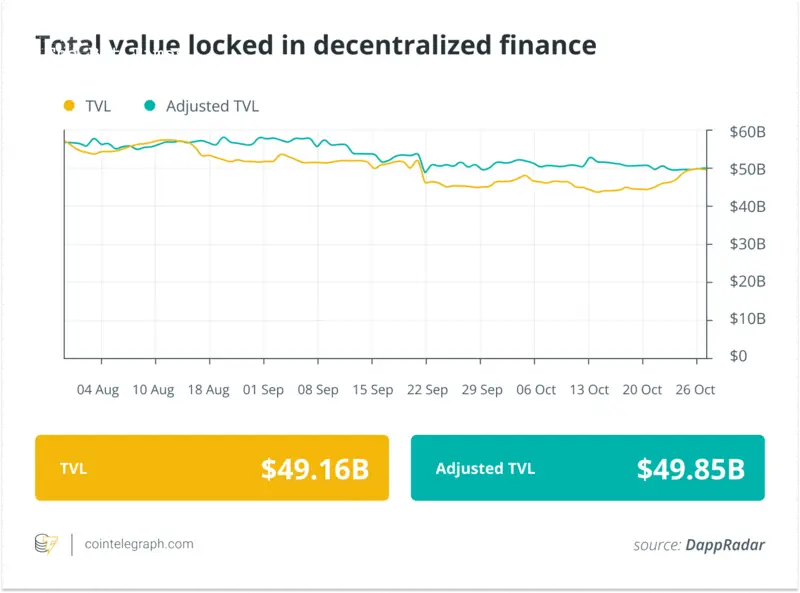Audits and rug-pulled projects, a $650B token burn, and major DeFi protocol quits UK: Finance Redefined
Welcome to Finance Redefined, your weekly dose of essential decentralized finance (DeFi) insights — a newsletter crafted to bring you the most significant developments from the past week.
The past week in DeFi was filled with bullish resurgences for many projects, but it was the Uniswap founder’s $650 billion HayCoin (HAY) burn — 99% of the token supply — that grabbed headlines. In other news, a new report highlighted that 85% of the rug-pulled DeFi projects in Q3 didn’t report an audit, and the largest DeFi protocol on Solana has shut down its United Kingdom operations due to strict regulations imposed by the Financial Conduct Authority (FCA).
The top 100 DeFi tokens had a bullish week, with most of the tokens trading in green with double-digit weekly gains.
85% of crypto rug pulls in Q3 didn’t report audits: Hacken
Cryptocurrency rug pulls are not too difficult to spot by investors, as the majority of such scams usually share distinct and visible features, according to a new report.
Blockchain security auditor Hacken released its latest security insights report on Oct. 25, aiming to spot the trends in Q3 crypto hacks and evaluate how affected projects approached security.
Continue reading
Largest DeFi protocol on Solana reportedly quits U.K. market, citing FCA rule
Marinade Finance, the largest DeFi protocol running on the Solana blockchain, has reportedly started blocking users from the United Kingdom. Customers in the U.K. discovered the problem on Oct. 23 while trying to access Marinade’s website from local IP addresses.
Marinade Finance has around 75,000 users with a total value locked of over $265 million at the time of writing, accounting for 70% of all the funds locked on the Solana blockchain.
Continue reading
Uniswap founder burns $650 billion in HayCoin against speculation
Uniswap founder Hayden Adams burned 99% of the HayCoin supply on Oct. 20, according to an announcement on X (formerly Twitter). The majority of the tokens have been removed from circulation due to Adams’ concerns about price speculation over the previous days.
Adams deployed the HAY token for testing five years ago, before the launch of the decentralized protocol Uniswap. He created a small test liquidity pool with a tiny fraction of the total supply and kept over 99.9% of HAY tokens in his wallet. Just a few weeks ago, the token was trading like a memecoin in the six-figure range.
Continue reading
Polygon launches POL token contract on Ethereum to eventually replace MATIC
Polygon Labs has launched the Ethereum contract for the new Polygon token, POL, according to an Oct. 25 announcement. The new token is intended to replace Polygon’s (MATIC) token. However, the team said users currently don’t need to exchange their MATIC for POL.
According to blockchain data, the new token was created on Oct. 25 at 9:06 am UTC. Its full name is the “Polygon Ecosystem Token.” In the announcement, the Polygon team claimed that POL would “power a vast ecosystem of zero knowledge-based Layer 2 chains” by implementing a “re-staking protocol” that allows tokenholders to stake it on multiple chains, performing multiple functions in the process.
Continue reading
DeFi market overview
Data from Cointelegraph Markets Pro and TradingView shows that DeFi’s top 100 tokens by market capitalization had a bullish week, with most tokens trading in the green on weekly charts. The total value locked into DeFi protocols jumped nearly $6 billion to $49.16 billion.

Thanks for reading our summary of this week’s most impactful DeFi developments. Join us next Friday for more stories, insights and education regarding this dynamically advancing space.
Comments
Post a Comment